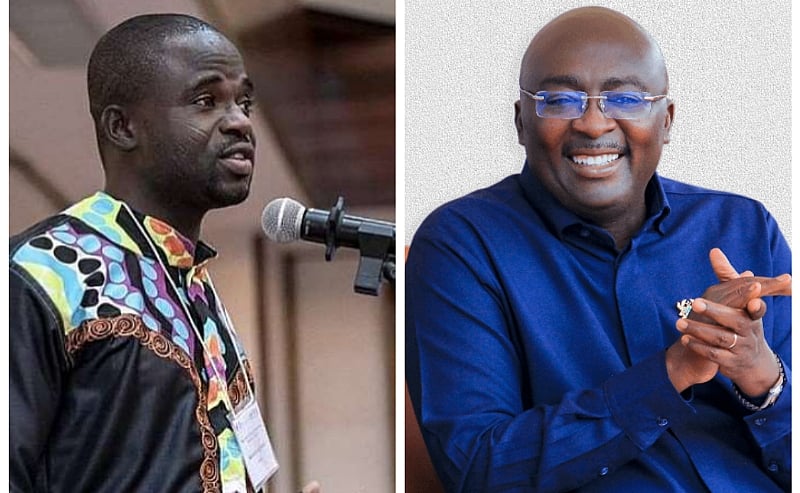Manasseh Azure Awuni, a prominent investigative journalist in Ghana, has publicly endorsed Dr. Mahamudu Bawumia as his preferred candidate for the New Patriotic Party’s (NPP) upcoming flagbearer elections. The NPP has scheduled these elections for January 31, 2026, to choose their candidate for the 2028 general elections. While several potential contenders have emerged, including Kennedy Agyapong, Dr. Yaw Osei Adutwum, Bryan Acheampong, and Kwabena Agyei Agyepong, Manasseh believes Bawumia is significantly ahead of the pack. He states that Bawumia is the only NPP candidate who could potentially earn his vote in the general election, should the opposition National Democratic Congress (NDC) fail to present a compelling alternative.
Manasseh’s endorsement isn’t necessarily a declaration of Bawumia’s absolute superiority within the NPP, but rather a recognition of his perceived strengths compared to the other potential candidates. He acknowledges that there may be other individuals within the party who possess greater overall capabilities, but among those currently vying for leadership, Bawumia stands out significantly. This distinction implies that Manasseh sees in Bawumia certain qualities or policy positions that align more closely with his own political preferences, making him a more palatable choice compared to the other contenders. This assessment is based on the current field of prospective candidates, leaving open the possibility that other, more compelling figures could emerge before the final selection process.
Further emphasizing his pragmatic approach to political endorsements, Manasseh identifies Kwabena Agyei Agyepong, former General Secretary of the NPP and former press secretary to President Kufuor, as his second-best choice. This ranking suggests a hierarchical assessment of the candidates based on Manasseh’s personal criteria, which likely encompass factors such as policy stances, leadership qualities, and perceived electability. The specific reasons for his preference for Bawumia and Agyepong over the other contenders are not explicitly stated, leaving room for speculation about the specific factors influencing his judgment. This two-tiered endorsement suggests a nuanced perspective, where he recognizes the strengths of multiple candidates while maintaining a clear preference for one over the others.
Manasseh also clarifies his position on political neutrality, asserting that he is not, in fact, neutral. He emphasizes his role as a citizen of Ghana first and a journalist second, underscoring his right and responsibility to participate in the democratic process. He openly admits to having a vested interest in who leads the country and makes clear his intention to exercise his voting rights. This declaration challenges the conventional notion of journalistic objectivity, which often discourages overt expressions of political preference. Instead, Manasseh advocates for a more engaged approach to journalism, where journalists acknowledge their own biases and perspectives while striving for fairness and accuracy in their reporting.
This public endorsement from a respected journalist holds significant weight and could influence the opinions of other voters. Manasseh’s reputation for investigative journalism and his critical stance towards political figures lend credibility to his endorsement. His willingness to publicly back a specific candidate suggests a deep conviction in Bawumia’s potential to effectively lead the country. His statement that Bawumia is the only candidate who could sway his vote away from the NDC, should they fail to impress, underlines the strategic significance of his endorsement. It suggests that Bawumia might appeal to a broader spectrum of voters, potentially including those who are not traditionally aligned with the NPP.
By publicly voicing his political preference, Manasseh adds another layer to the ongoing discussion surrounding the NPP flagbearer elections and the broader political landscape in Ghana. His declaration challenges the traditional boundaries of journalistic objectivity and encourages a more open dialogue about the roles and responsibilities of journalists in a democratic society. His endorsement of Bawumia, coupled with his second-choice preference for Agyepong, provides valuable insight into the perceived strengths and weaknesses of the various contenders vying for the NPP leadership and ultimately, the presidency of Ghana. His statements will likely spark further debate and discussion among political analysts, commentators, and the general public in the lead-up to the crucial election.


